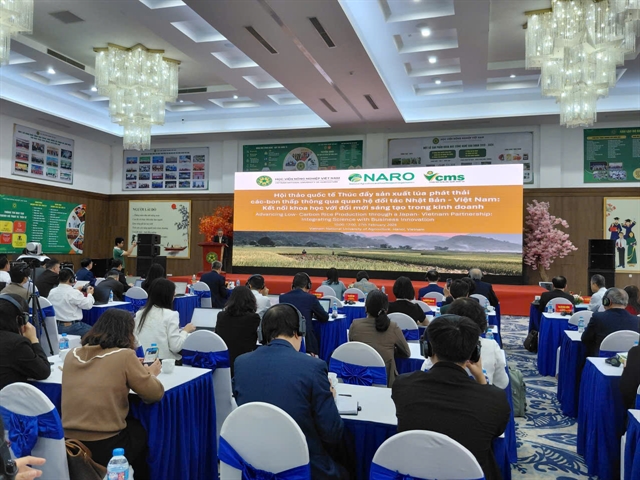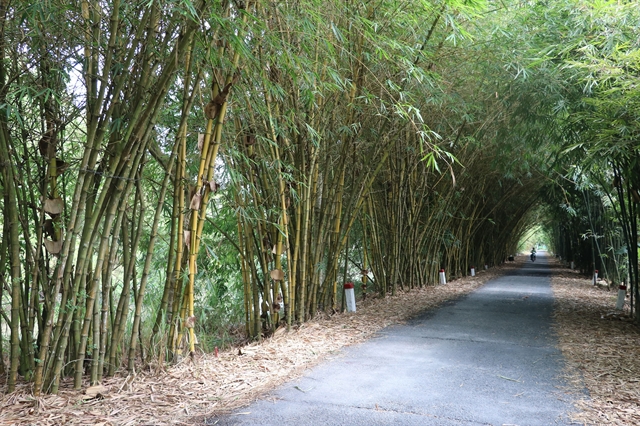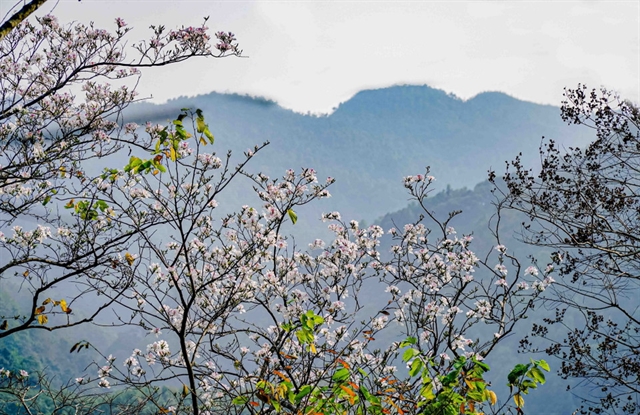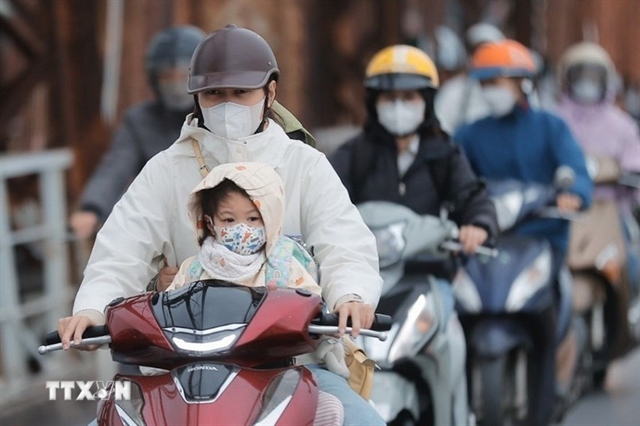 Environment
Environment


|
| Bamboo trees are planted along a road in the Gáo Giồng cajuput forest area in Đồng Tháp Province’s Cao Lãnh District. – VNA/VNS Photo Nguyễn Văn Trí |
ĐỒNG THÁP – The Cửu Long (Mekong) Delta province of Đồng Tháp is taking measures to preserve bio-diversity in its wetlands, waterways, and dry land areas, as well as in agricultural production, in the 2021-25 period.
Huỳnh Minh Tuấn, deputy chairman of the province's People’s Committee, said that fish and other aquatic species, for example, were often released into the wild on public holidays. The province releases more than 2 million fish of various species into the wild each year.
The province has surveyed eco-systems to identify the specific areas and species of plants and animals that should be preserved. Typical plants like lotus, water lily, cajuput trees, bamboo, rice varieties and other indigenous plants will be preserved.
Many plants, especially rice varieties and specialities fruits like Cát Chu mango, Cát Hoà Lộc mango and pink mandarin, will be preserved as well.
The province is also focusing on developing animal husbandry, aquaculture and plants in the Đồng Tháp Mười (Plain of Reeds) area in the Tràm Chim National Park, Gò Tháp Heritage Site, Xẻo Quýt National Historic Site and Gáo Giồng cajuput forest area.
In the Gáo Giồng cajuput forest area in Cao Lãnh District, 68 types of bamboo on a bamboo reservation area are under preservation.
Huỳnh Thanh Hiền, head of the Gáo Giồng cajuput forest area’s Management Board, said the reservation is part of a preservation area attached to the Gáo Giồng ecotourism area. Many bird species are now coming and making nests in the bamboo area. The bamboo reservation is also a place for researchers and tourists to visit and study about bamboo species in Việt Nam.
From 2021 to 2025, the province People’s Committee said it would improve public awareness about bio-diversity preservation and environmental protection.
Nature reserves, endangered animals and plants, and forest areas, especially special-use forests, will all be protected. Focus will also be on the reproduction of indigenous plants and animals that have high value and the use of advanced techniques in agricultural production to promote bio-diversity.
The province is calling for private investment in bio-diversity, forest and eco-tourism preservation and environmental protection projects. – VNS




